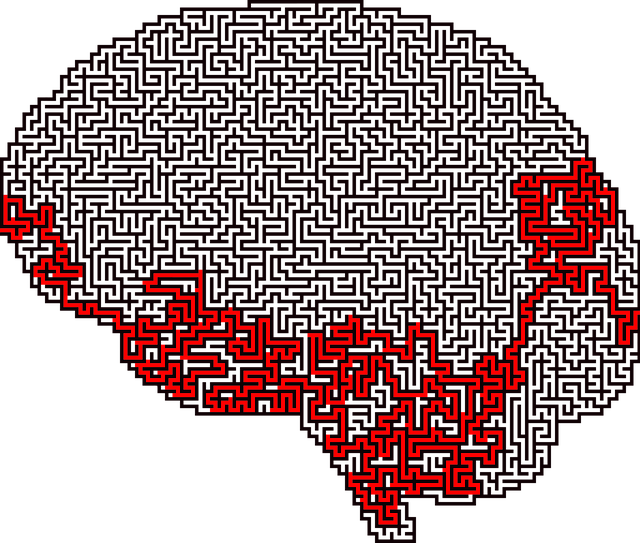In Highlands Ranch Spiritual-Religious Issues Therapy, risk management planning is crucial for client safety and effective therapy. This involves identifying risks, from ethical challenges to emotional crises, and developing strategies to mitigate them, while considering both individual client needs and societal influences. Proactive measures like integrating public awareness campaigns and compassion cultivation practices create a supportive environment, enhancing the therapeutic experience. Addressing spiritual-religious issues is vital in risk management for mental health professionals in Highlands Ranch, requiring sensitivity to clients' belief systems and cultural backgrounds. A comprehensive strategy includes safe spaces for belief discussions, mindfulness techniques, tailored self-care routines, mood management techniques, regular plan updates, clear boundaries, informed consent, confidence-boosting exercises, emotional regulation practices, and client feedback integration.
In the high-stakes field of mental health practice, effective risk management planning is paramount. This comprehensive guide explores key aspects of risk management for professionals in Highlands Ranch therapy settings, focusing on identifying spiritual-religious issues that may arise. We delve into developing robust strategies to mitigate these risks and provide practical steps for implementation and ongoing monitoring. By understanding and proactively addressing potential challenges, therapists can create a safer, more nurturing environment for their clients.
- Understanding Risk Management in Mental Health Practice
- Identifying Potential Risks and Spiritual-Religious Issues in Highlands Ranch Therapy
- Developing a Comprehensive Risk Mitigation Plan
- Implementing and Monitoring Effective Risk Management Strategies
Understanding Risk Management in Mental Health Practice

In the field of mental health care, particularly within settings like Highlands Ranch Spiritual-Religious Issues Therapy centers, risk management planning is more than just a procedural step; it’s a vital tool for ensuring client safety and fostering effective therapy. This involves identifying potential risks, which can range from ethical dilemmas to crises that may arise during emotional healing processes, and implementing strategies to mitigate these risks.
A comprehensive approach includes considering not only individual client needs but also societal factors that might impact their well-being. For instance, public awareness campaigns development and the integration of compassion cultivation practices can play a significant role in risk management. By being proactive in addressing these aspects, mental health professionals in Highlands Ranch can create a supportive environment, enhancing the therapeutic journey while upholding professional standards.
Identifying Potential Risks and Spiritual-Religious Issues in Highlands Ranch Therapy

In Highlands Ranch therapy settings, identifying potential risks and addressing spiritual-religious issues are essential components of comprehensive risk management planning for mental health professionals. Therapists must be attuned to clients’ belief systems and cultural backgrounds, as these can significantly influence their mental wellness journey. Many individuals seek therapy to enhance self-esteem and cultivate mindfulness in a supportive environment. However, it is crucial to recognize that spiritual or religious beliefs may intersect with therapeutic approaches, requiring sensitivity and adaptability from practitioners.
Understanding the intricate relationship between Highlands Ranch spiritual-religious issues and therapy involves recognizing that clients’ faith can be both a strength and a challenge. Some individuals might find solace in their spiritual practices for coping with mental health struggles, while others may experience conflict when therapeutic methods seemingly contradict their religious doctrines. Professionals must create a safe, non-judgmental space to explore these complexities, ensuring the client’s autonomy and right to self-determination.
Developing a Comprehensive Risk Mitigation Plan

In developing a comprehensive risk mitigation plan for mental health professionals practicing in Highlands Ranch, addressing spiritual-religious issues should be central. This involves creating safe spaces where clients can openly discuss their beliefs and how they intersect with their mental health challenges. Incorporating practices like mindfulness, meditation, and self-care routines tailored to individual needs—especially in a bustling therapy setting—can significantly enhance stress management and prevent burnout.
A robust risk management strategy further includes integrating mood management techniques into therapeutic approaches. By doing so, mental health professionals in Highlands Ranch can better equip clients with tools to navigate emotional ups and downs, fostering resilience against unexpected stressors. Regularly reviewing and updating the risk mitigation plan is vital, ensuring it remains adaptable to the evolving needs of both practitioners and their clients.
Implementing and Monitoring Effective Risk Management Strategies

Implementing effective risk management strategies is a cornerstone for mental health professionals practicing in Highlands Ranch, particularly when addressing spiritual-religious issues in therapy. A structured approach ensures that both clients and practitioners feel safe and supported throughout the therapeutic process. This involves proactive measures like establishing clear boundaries, obtaining informed consent, and integrating confidence-boosting exercises into sessions to mitigate potential risks associated with sensitive topics.
Regular monitoring of these strategies is crucial to their success. Mental health professionals should encourage open communication, allowing clients to express concerns or triggers freely. By fostering an environment of trust and self-awareness through exercises designed for emotional regulation, practitioners can help reduce the mental illness stigma and enhance therapeutic outcomes. Regular review and adaptation of risk management plans based on client feedback ensures a dynamic and responsive approach tailored to individual needs.
Mental health professionals in Highlands Ranch must be proactive in managing risks, especially those related to Highlands Ranch spiritual-religious issues therapy. By understanding risk management fundamentals, identifying potential hazards, and developing robust mitigation strategies, therapists can ensure a safe and therapeutic environment for clients. Implementing these plans requires ongoing monitoring and adaptation to changing circumstances, fostering an effective and secure practice.














